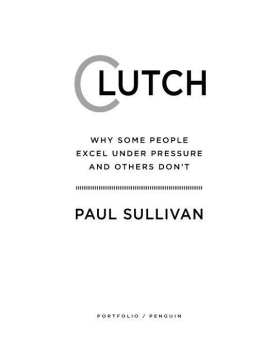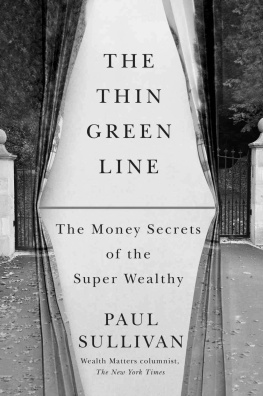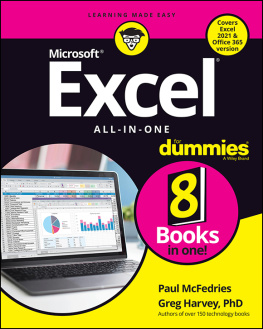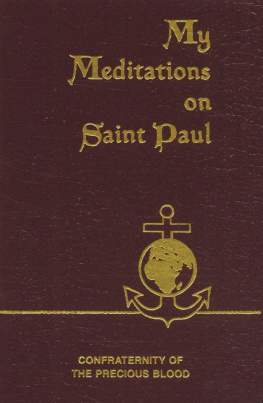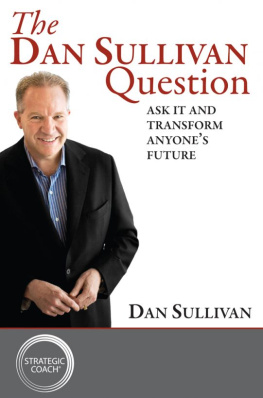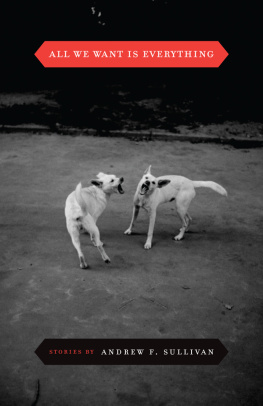Table of Contents
PORTFOLIO
Published by the Penguin Group
Penguin Group (USA) Inc., 375 Hudson Street, New York, New York 10014, U.S.A.
Penguin Group (Canada), 90 Eglinton Avenue East, Suite 700, Toronto, Ontario, Canada M4P 2Y3 (a division of Pearson Penguin Canada Inc.)
Penguin Books Ltd, 80 Strand, London WC2R 0RL, England
Penguin Ireland, 25 St. Stephens Green, Dublin 2, Ireland (a division of Penguin Books Ltd)
Penguin Books Australia Ltd, 250 Camberwell Road, Camberwell, Victoria 3124, Australia (a division of Pearson Australia Group Pty Ltd)
Penguin Books India Pvt Ltd, 11 Community Centre, Panchsheel Park, New Delhi-110 017, India
Penguin Group (NZ), 67 Apollo Drive, Rosedale, North Shore 0632, New Zealand (a division of Pearson New Zealand Ltd)
Penguin Books (South Africa) (Pty) Ltd, 24 Sturdee Avenue, Rosebank, Johannesburg 2196, South Africa
Penguin Books Ltd, Registered Offices:
80 Strand, London WC2R 0RL, England
First published in 2010 by Portfolio,
a member of Penguin Group (USA) Inc.
Copyright Paul Sullivan, 2010
All rights reserved
Library of Congress Cataloging-in-Publication Data
Sullivan, Paul.
Clutch : why some people excel under pressure and others dont / Paul Sullivan. p. cm.
Includes bibliographical references and index.
eISBN : 978-1-101-44262-3
1. Self-confidence. 2. Stress (Psychology) 3. Success. I. Title.
BF575.S39S85 2010
155.9dc22
2010013789
Without limiting the rights under copyright reserved above, no part of this publication may be reproduced, stored in or introduced into a retrieval system, or transmitted, in any form or by any means (electronic, mechanical, photocopying, recording, or otherwise), without the prior written permission of both the copyright owner and the above publisher of this book.
The scanning, uploading, and distribution of this book via the Internet or via any other means without the permission of the publisher is illegal and punishable by law. Please purchase only authorized electronic editions and do not participate in or encourage electronic piracy of copyrightable materials. Your support of the authors rights is appreciated.
http://us.penguingroup.com
To Laura for your love, patience, and never-ending support,
and to Ginny for sleeping through the night
INTRODUCTION
WHATS CLUTCH?
WHAT DOES IT mean to be clutch? Most sports fans are pretty sure they know the answer. But consider these three classic moments in sports. They have all been called clutch moments, but only one of them actually is:
In game seven of the 1965 Eastern Conference basketball championship the score stood at 110-109. The Boston Celtics led the Philadelphia 76ers by one point with five seconds left on the clock. The 76ers had been given possession of the ball and were ready to inbound it. Whichever player got it had time for one shot, to win or lose the game. As Hal Greer, the 76ers All-Star guard, threw the ball into play, Johnny Havlicek spun and tipped it to his Celtics teammate. Havlicek steals it! boomed Johnny Most, the gravelly-voiced announcer of the Celtics. Havlicek stole the ball! Its all over. Its all over... Johnny Havlicek stole the ball! Arguably the most famous call in basketball, it has immortalized the play. What it leaves out is that Havlicek had his back to Greer and spun at just the right moment to tip the ball. This makes what he did even more extraordinary. He wasnt even looking at Greer. But his quick move sent the Celtics to victory.
Two decades later, Tommy Lasorda, the Los Angeles Dodgers manager, decided to put Kirk Gibson in as a pinch hitter. Down 4-3 in the first game of the 1988 World Series, with two outs and the tying run at first base, Gibson would have been the ideal choice in the circumstancehad he not had a stomach bug and two legs in such pain that he limped to the plate. If he hit a pitch anywhere in the ballpark, he wouldnt have made it to first. He could only do one thing: hit a home run. Gibson, in that shape, looked like an easy out, even more so because he was facing Dennis Eckersley, the Oakland Athletics star pitcher and future Hall of Famer. But Gibson worked the count until it stood at three balls and two strikes. On the next pitch, he swung, all arms and no legs, and hit the ball out of the park to win the game. His hobbling around the bases, fist raised in triumph, remains a quintessential image of fortitude, determination, and toughness.
Fast-forward another twenty years, and Eli Manning, the New York Giants quarterback, was facing a situation he had faced many times in his career: getting close to victory in an important game only to lose in the end. Tom Brady, considered one of the best quarterbacks of his era, had just brought the New England Patriots back from three points down to four points ahead in the last eight minutes of Super Bowl XLII. He had passed, handed off, scrambledeverything he could think of to get the Patriots into scoring position. When he threw to Randy Moss in the end zone, it seemed that Brady, with his nerves of steel, had engineered another come-from-behind victory. The score stood at 14-10 with two minutes left on the clock. Manning had led his wildcard team to the Super Bowl, but now it looked as though it was over. He had nothing to be ashamed of; it had been a great run. But it didnt play out that way. With the highest stakes of his careerwin and beat a team that was expecting to go undefeated; lose and forever be overshadowed by his brother Peyton, who had won the Super Bowl the year beforeManning refused to quit. He led his team down the field until he threw a short pass to Plaxico Burress in the end zone. The final score was 17-14, with the Giants as Super Bowl champions.
So which one of these amazing sports moments was clutch? There is only one right answer. Heres a fourth option that might help you decide: In July 2009, Roger Federer faced off against Andy Roddick in the Wimbledon final. Federer had had his five-year winning streak broken the year before. But this match was more than a comeback. If Federer won, it would be his fifteenth Grand Slam tennis title, more than any other player had ever won. Roddick, who had lost in the final three previous times, was in the best shape of his career, and he got out to an early lead, winning the first set. Federer won the next two. In the fourth, Roddick came from behind to force a fifth set to decide the match. At 8-8, Federer looked as though he might lose, but he came back, and the set stretched to 15-14 before Roddick faltered. Federer won 16-14. At the end of the four-hour match, the two had played 77 gamesa Wimbledon recordand the longest fifth set in the championships history. With his victory, Federer had broken Pete Samprass Grand Slam recordwith Sampras watching courtside.
So which of the four were clutch? If you picked the last two, you were right.
CLUTCH IS MORE THAN SPORTS
Most people associate clutch performances with a triumphant sports moment: the home run that wins the game or the basket or stolen pass at the buzzer. But each of these contains an element of luck, and clutch is not luck. Gibson could have easily struck out or merely hit a triple, and Havliceks play was incredibly risky. However great these plays were, they relied on a good deal of luck. They were remarkable, but they were not clutch. The reason is being clutch is not the hole-in-one to win; its the well-struck shot close to the flag and the putt that drops in with the tournament on the line. Its the precisely executed series of plays in football, not the Hail Mary pass. Its the fortitude to continue battling out a Wimbledon final as you always haveeven though the whole world is wondering whether you are going to choke. Clutch, simply put, is the ability to do what you can do normally under immense pressure. It is also something that goes far beyond the world of sport. And while it has a mental component, it is not a mystical ability, nor somehow willing yourself to greatness. After all, every professional athlete is mentally tough or he wouldnt have made it that far. For that matter, every chief executive of a company has shown leadership to get where he is. But that does not mean he will be clutch.



